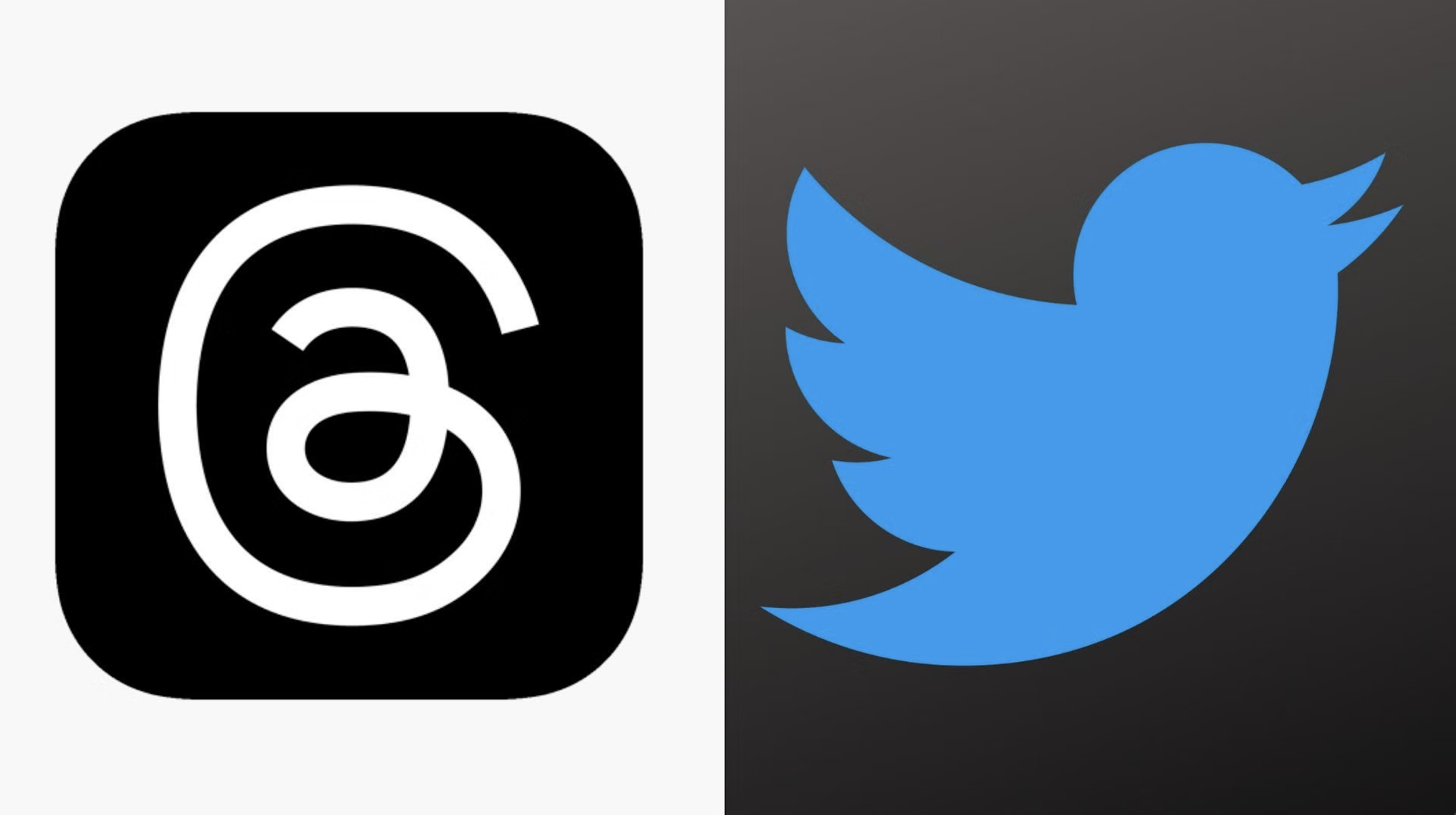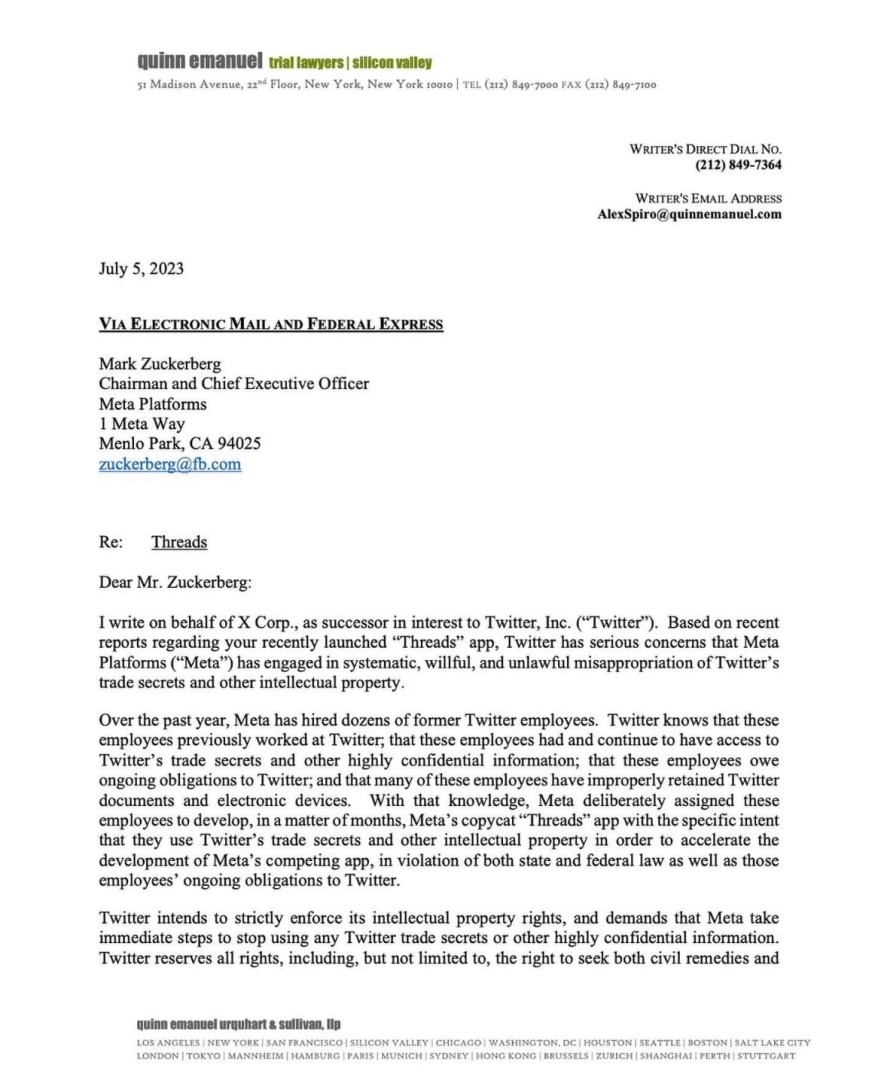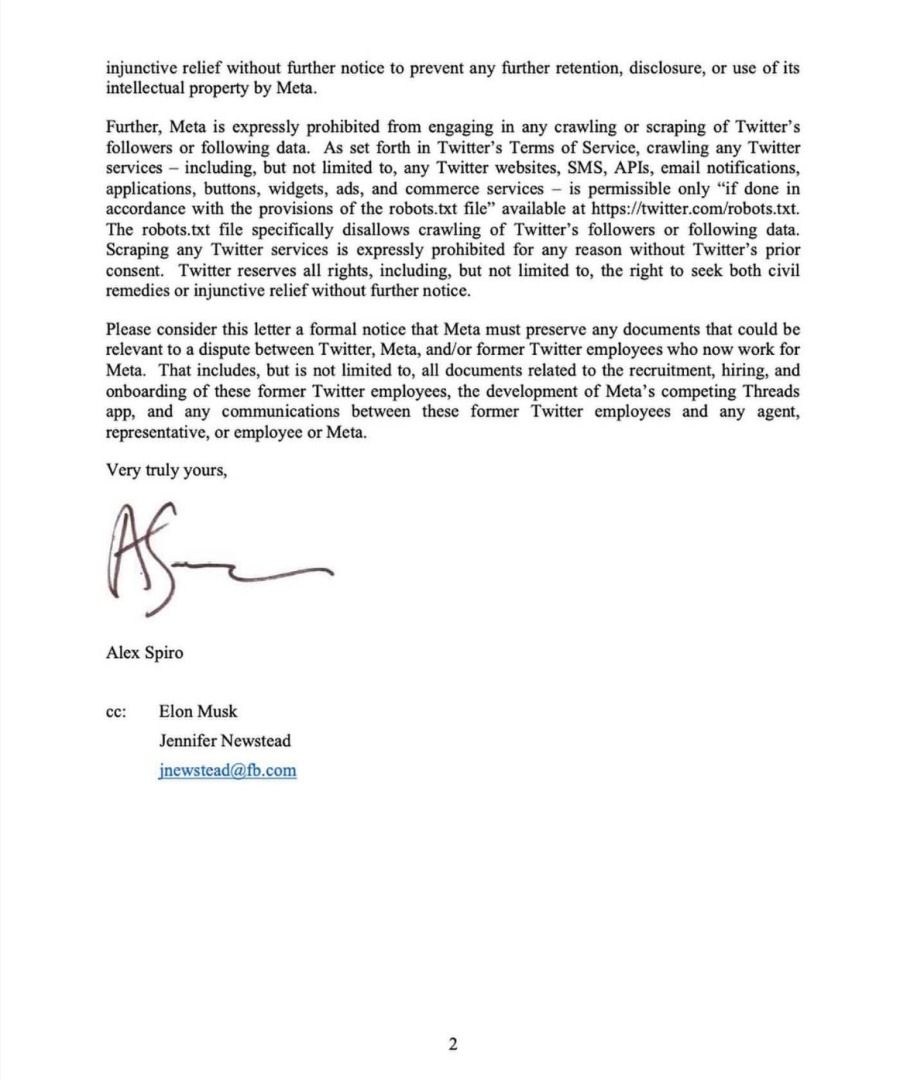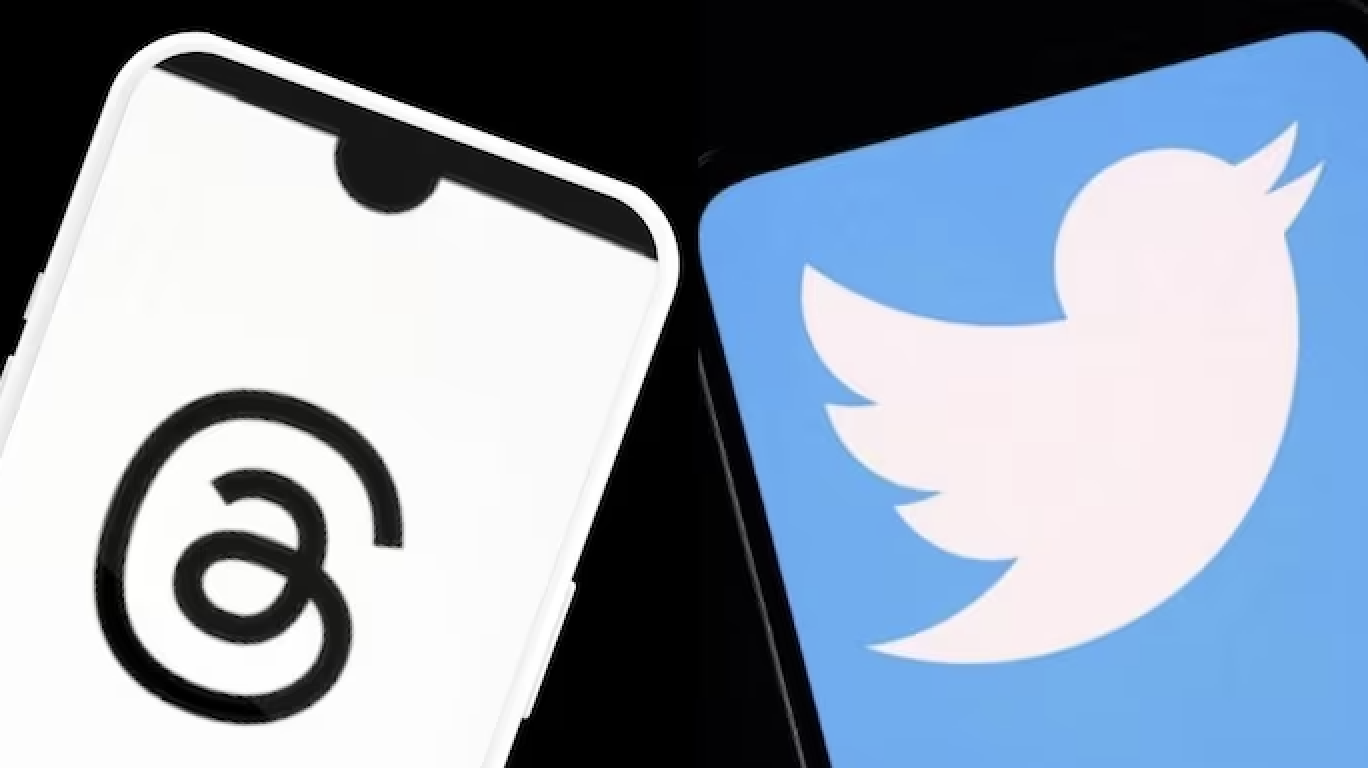Comments
- No comments found

Twitter is considering legal action against Meta, Facebook's parent company.
Elon Musk's attorney, Alex Spiro, has issued a letter to Mark Zuckerberg, raising the possibility of legal consequences.
Preventing a monopolistic social media landscape is of utmost importance. It ensures competition, protects user choice and privacy, preserves freedom of expression, promotes innovation and accountability, and fosters a healthy digital society. By supporting a diverse ecosystem of social media platforms, we can uphold the values of a democratic and inclusive online space that serves the best interests of its users.
The letter alleges that Meta has recruited ex-Twitter employees with the intention of developing a clone platform, prompting the threat of litigation.


The lawsuit threat stems from allegations that Meta hired former Twitter employees to create a clone of the popular microblogging platform. This development raises questions about Meta's history of imitation and its impact on the competitive landscape of social media.
A monopolistic social media landscape stifles competition and hampers innovation. When one platform controls a significant market share, it diminishes the incentive for rivals to enter the market or develop new ideas. This lack of competition hinders the introduction of fresh features, functionalities, and alternative platforms that could better cater to users' evolving needs and preferences.
A diverse social media ecosystem ensures that users have choices, enabling them to select platforms that align with their values, preferences, and privacy concerns. With a monopoly, users are limited in their options, and their personal data may become more vulnerable to exploitation. Preventing a monopolistic landscape allows users to exercise agency by opting for platforms that prioritize user privacy and data protection.
Meta has long been accused of a copycat culture, often prioritizing imitation over innovation. Notably, a 2020 US House Judiciary Committee probe unearthed internal emails from April 2012 in which Facebook employees explicitly stated that "copying is faster than innovating." Examples of failed copycat attempts include Facebook Check-In deals, Facebook Gifts, and the ill-fated acquisition of Parse. These instances illustrate Facebook's struggles to successfully replicate and sustain the products it imitates.
While Meta's penchant for imitation is well-documented, it is crucial to acknowledge the fundamental differences between Twitter and Meta's platforms. The disparity lies not only in functionality but also in their respective stances on free speech. Twitter has long positioned itself as a platform that fosters free expression and serves as a virtual town hall for open dialogue. In contrast, Meta's expansive approach encompasses various platforms, including Facebook, Instagram, and now Threads. These platforms may compete with Twitter but offer distinct experiences.
Despite the legal battle looming between Twitter and Meta, the two platforms can coexist due to their unique identities and user bases. Twitter's commitment to free speech and its role as a virtual town hall sets it apart from Meta's suite of platforms. This essential distinction prevents one platform from fully replicating the other's core offering. While Meta's expansion may bring it closer to competing with Twitter, both ecosystems are expected to exist in the future, each providing a distinct experience.
As the legal battle unfolds, it becomes essential to consider the importance of free speech to individuals. Twitter's unwavering commitment to fostering open dialogue and serving as a platform for free expression resonates with those who value these principles. In contrast, Meta's wide-ranging platform approach offers a diverse set of experiences but may not rival Twitter's position as the bastion of free speech.

While the legal battle between Twitter and Meta captures attention, it is crucial to recognize the fundamental differences between the two platforms. Facebook's history of imitation and Meta's expansion efforts may pose challenges, but Twitter's commitment to free speech and its unique role as a virtual town hall set it apart. Ultimately, both Meta and Twitter are likely to coexist, offering users distinct experiences. The outcome of the legal dispute will shape the competitive landscape, but it is the users' values and priorities surrounding free speech that will ultimately determine their preferred platform.
Competition among social media platforms drives innovation and accountability. Multiple platforms constantly vie for user attention, leading to the development of new features, improved algorithms, and better user experiences. Competition also encourages platforms to address issues of content moderation, misinformation, and privacy concerns, as failure to do so may result in users migrating to alternative platforms. A diverse landscape promotes innovation and holds platforms accountable to their users.
Leave your comments
Post comment as a guest